Jump to the content
- {{#headlines}}
- {{title}} {{/headlines}}
If you come to Germany from abroad on the strength of a Humboldt Foundation fellowship you form an impression of universities and research institutions as well as of general everyday conditions, and you get to know people in various different contexts on the spot. How open and tolerant are Germans in their dealings with their guests? How humorous, how bureaucratic, how progressive are they? How well equipped are the labs or libraries? What about working hours, childcare and career opportunities for junior researchers?

Contact:
Dr Meike Olbrecht
Head of Division Evaluation, Statistics
evaluation[at]avh.de
Implementation of the study and analysis of the data:
Simon Grates
Division Evaluation, Statistics
Stefan Wünsche
Division Press, Communications and Marketing
The evaluation
These are all questions the Humboldt Foundation asks its sponsorship-recipients in an online survey at the end of their sponsorship period. On average, researchers and their families spend approximately 18 months in Germany. The Humboldt Foundation has evaluated the feedback provided by more than 1,800 visiting researchers from 119 countries who worked at German universities and research institutions between August 2018 and May 2022. Just as in the previous survey in 2019, the responses reveal that Germany and its science system are judged very positively, not least in comparison with other countries. The potential for improvement with regard to bureaucracy, for example, identified four years ago, is still relevant.

Background: In an online survey at the end of their research stay, which on average lasts 18 months, the Foundation’s sponsorship recipients evaluate various aspects according to predefined scales and are also free to add comments. All responses are anonymised prior to evaluation; qualitative content analysis is used to evaluate the comments. More than 94 percent of sponsorship recipients participated in the survey. The outcomes thus reflect the Humboldt fellows’ comprehensive, representative image of Germany.
The main bottlenecks during the stay in Germany were associated with adjusting to the culture, language and procedures. But these small issues were sorted near to the end of the fellowship owing to the language fellowship support from the Foundation. After a few months of the stay, it was also easy to acclimatise to the culture and procedural systems too.
Research location: Germany
Without exception, Germany scores very well as a science location in comparison with the other countries. On a scale from zero to ten, there are top scores for infrastructure (8.1 as an average of all respondents), quality of research (8.3), project financing opportunities (8.3), internationality and childcare (both 8.0). The results vary significantly according to the fellows’ regions of origin. At 8.6, sponsorship recipients from Asia, for example, rate the quality of research higher than those from North America (7.1). Also positive, although not so high, are scores for professional prospects and dual career options (both 6.8) as well as the promotion of junior researchers (7.4).
Strengths and weakness in comparison with the 2019 study
Country of origin is still an important criterion in assessing the conditions in Germany. In this context, there have only been very slight changes. On nearly all points, however, sponsorship-recipients from North America rate Germany somewhat better than in the previous evaluation rounds covering 2013 to 2018. On a global scale, the evaluation of the host country has remained stable. Professional prospects and general conditions in Germany enjoy better ratings than in 2019, even in comparison with other parts of the world. By contrast, the evaluation of the situation of young researchers reveals that the promotion of junior researchers and dual-career opportunities continue to be rated as moderately good.
Some aspects of German culture were difficult to adapt to, (…) but the single biggest issue is that we would have loved to stay in Germany, but the prospects for obtaining a permanent position here are basically zero. That is a huge problem for young researchers and inevitably results in the best researchers leaving the country.
Impressive infrastructure, but not in all areas
The infrastructure and facilities at universities and research institutions continue to be highly rated (8.1). The increasing lack of nursery and daycare places, on the other hand, is seen by the visiting researchers as a stress factor: “By becoming German for a while, we learned the difficulties people in Berlin are increasingly experiencing: we almost couldn’t find a Kita for our two kids” (Netherlands, m). Overall, childcare is rated slightly worse than it was in the last evaluation period, although together with other work-life balance criteria, in international terms it is still good (8.9). The evaluation of working hours has improved slightly in comparison with the previous evaluation period to 7.7 points. On the topics of climate protection and resource conservation, International Climate Protection sponsorship-recipients were surveyed specifically. Here, too, the trend in their perception of Germany is positive (8.6)
Features associated with Germany: pro science, tolerant and even humorous
Asked what they associated with Germany on a scale from minus five to plus five, Germany emerged as very science friendly (4.2 on average), democratic (3.8), gender equal (3.2), hospitable (2.8) and tolerant (2.7). When it came to sense of humour (1.2) and openness (0.8), the responses were not so positive. The respondents also rate Germany as somewhat less progressive and hospitable than at the last evaluation in 2019.
Sometimes people in Germany tend to assess performance and results without taking into account cultural, economic, ethnic or religious differences, factors that should be weighing in when it comes to fully understanding where a person comes from. Although that was not a constant, there were some encounters like this.
One negative trend in the overall evaluation is striking: Germany is largely seen as a bureaucratic country (-1.3). In comparison with the last survey covering the period 2012 to 2018, this score dropped by 0.6 points. The worst score in this category came from sponsorship recipients from North America (-3.2) whilst the fellows from Asia rated Germany as not quite as bureaucratic (0.6) as the respondents from other parts of the world.
Focus on country: region and nation not the same
When examining individual countries, it becomes clear how diverse the perspectives within one and the same region can be. In Europe, researchers from Italy (7.6), Spain (7.6) and Poland (7.4) rate the professional prospects in Germany significantly better than their colleagues in Scandinavia (6.3) and North America. Whilst of all those surveyed, researchers from the United States give this aspect the lowest rating (5.1), in comparison with their colleagues from other countries they rate working hours (7.79) and childcare provision (8.1) in Germany as above average. The responses from emerging economies like China and India, which are also appreciative of the good work-life balance in Germany, are similar. Although the answers globally cannot be ascribed to regional clusters, one group stands out: the fewest advantages in comparison with their own countries are registered by researchers from Scandinavia, France and the United Kingdom.
„Sometimes, very simple things turn into Kafkaesque situations”
Individual points of criticism focus on three problematic fields: language barrier, bureaucracy and discrimination
Sponsorship-recipients were asked to comment freely on their personal experiences and express their criticisms of the focus areas. Of the more than 1,800 participants in the survey, 1,554 answered the open question “What were the negative aspects of your stay in Germany?” appropriately. The most frequent points of criticism were language barrier, bureaucracy and discrimination. Especially outside of academia, the lack of foreign language skills is often identified as a problem which makes the necessary dealings with authorities more difficult:
It is truly difficult to make contact with local officials without knowing German, not even with the alien immigration office.
Bureaucracy, the only negative value on the scale from minus five to plus five, also stands out in the comments. The overall decline by 0.6 points and, in the case of survey respondents from Sub-Saharan Africa by as much as 1.2, demonstrates that this assessment is shared equally by industrialised countries, emerging economies and developing countries. Even though the explanations in the comments are different, they demonstrate that action is necessary in this area:
With regard to discrimination and racism, the answers show that the overall figure (6%) for relevant comments has barely changed in comparison with the last evaluation. Sponsorship recipients hailing from countries in Sub-Saharan Africa (10%) found themselves most frequently confronted with discrimination or xenophobia. Sponsorship recipients holding European nationality (4%) were affected least frequently.
At 6.2 percent, women mention discriminatory aspects somewhat more often than men (5.1%). In the comments, they specifically refer to gender-related discrimination:
A very little amount of discrimination I experienced based on my gender. (...) I think Germany in general is sufficiently progressive in gender issues, especially compared to some other places. However, German academia (or at least my field) is still quite male-centered and patriarchal, which is evidenced by the rarity of female professors.
Positive outcomes despite the pandemic
The Covid pandemic also fell within the evaluation period and its effects elicited responses in almost half the comments. It is noteworthy that women more frequently reported on negative experiences than men; the responses also differed greatly according to region of origin: at 51.8 percent, people with Central or South American nationality were most frequently negative, those with Asian nationality (25%) least frequently. But the comments differ greatly with regard to intention and quality. A negative comment may, on the one hand, refer to the impact on private life or the research stay, on the other hand, to the way the pandemic was managed in comparison with the commentators’ own countries. Some of those surveyed were particularly critical of the “Querdenker movement and the number of people who did not respect the Covid restrictions” (Brazil, m). However, most of the comments do not address the Covid safeguards or the failure to comply with them but the impact on everyday research work and integration in everyday life:
I needed help many times because of corona in the kindergarten or child minder. I had to stop many times experiments that made me lose the week. The lockdown was also quite hard. I am a microbiologist, so if I stop something in the middle of the week, it is hard to continue, and that was frustrating.
Although the questionnaire specifically asked for negative experiences and concomitant suggestions for improvement, apart from pandemic-related circumstances and structural criticism, there were also numerous positive comments – not least about the conditions of research and life as well as about the Foundation’s work:
As me and my wife did the language course, and were very open, we made a lot of good friends and I also progressed immensely in my career; we have not experienced any negative aspects of Germany.
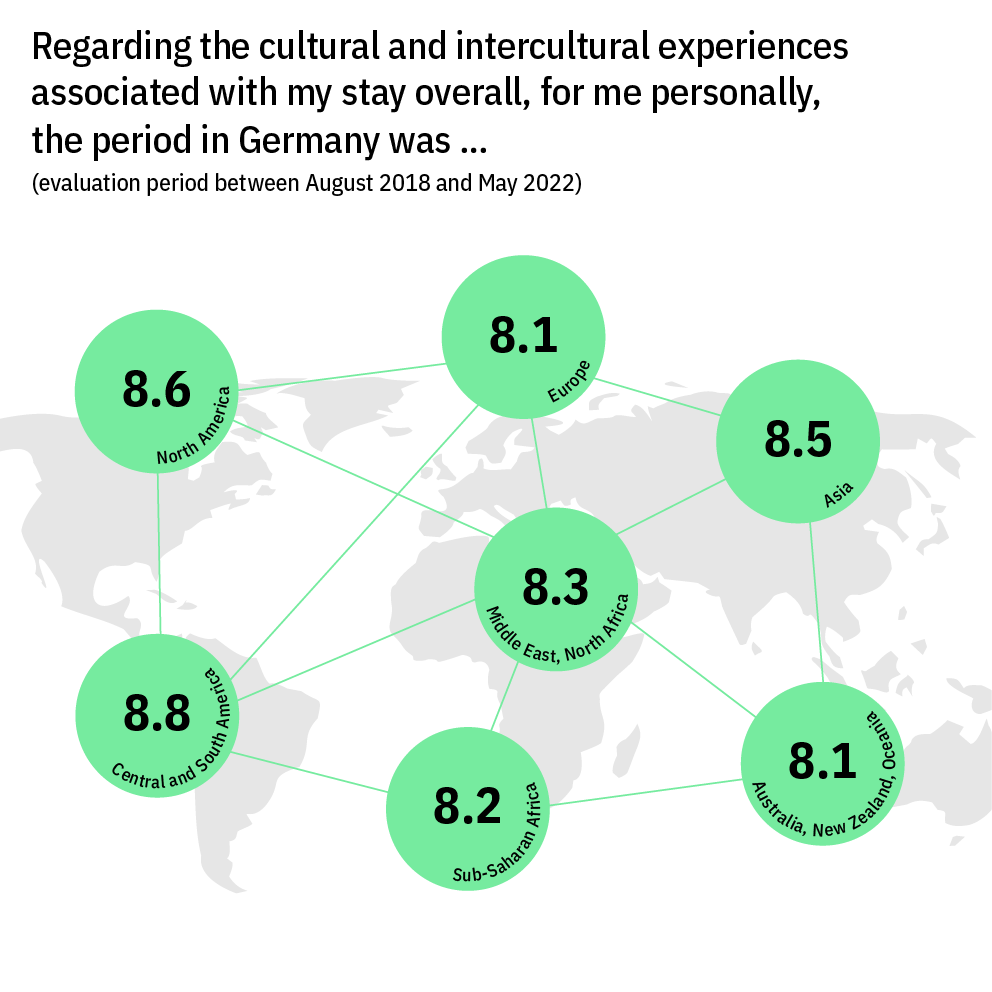


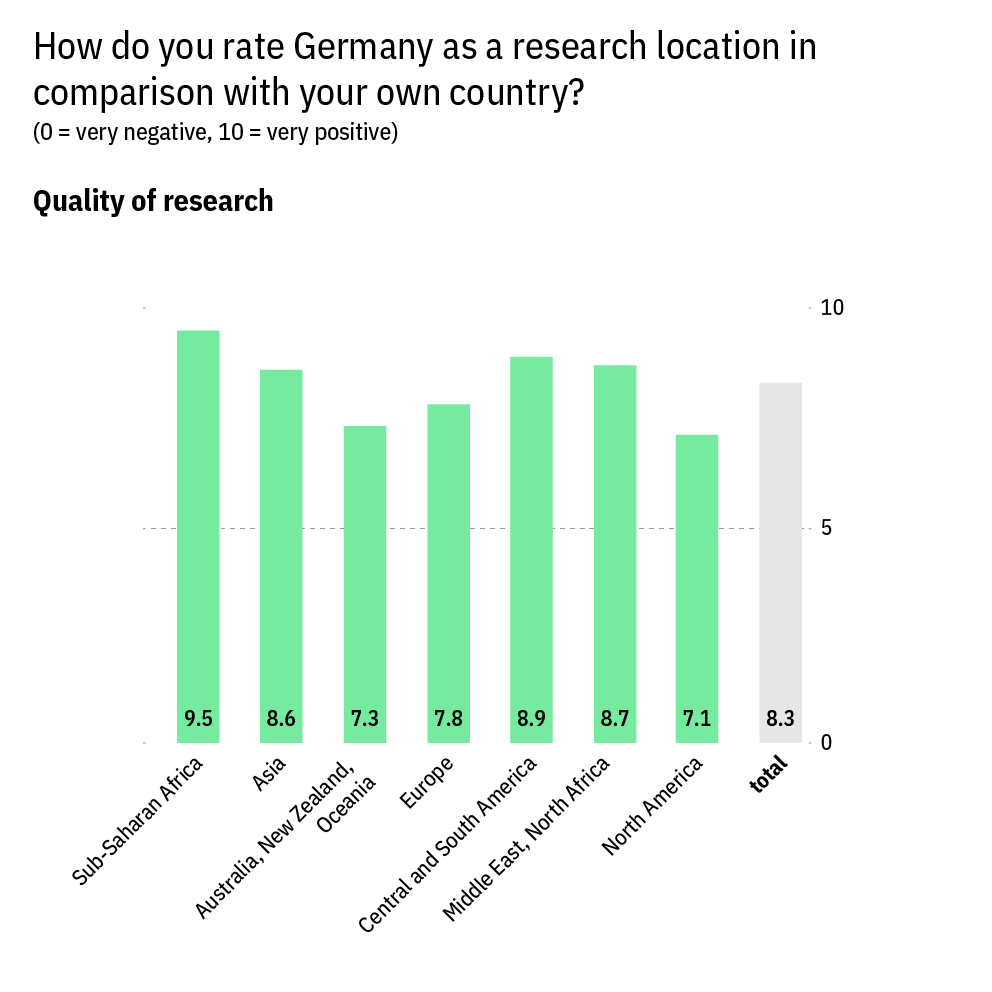
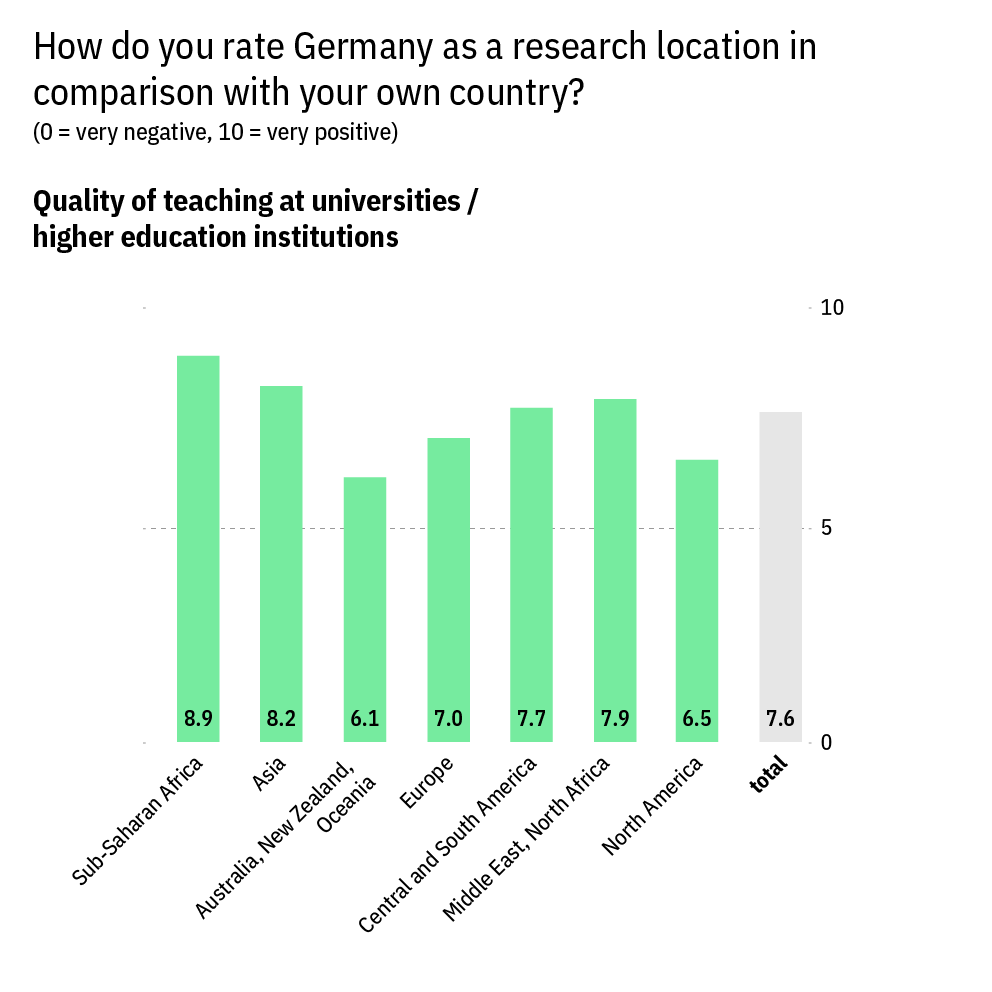
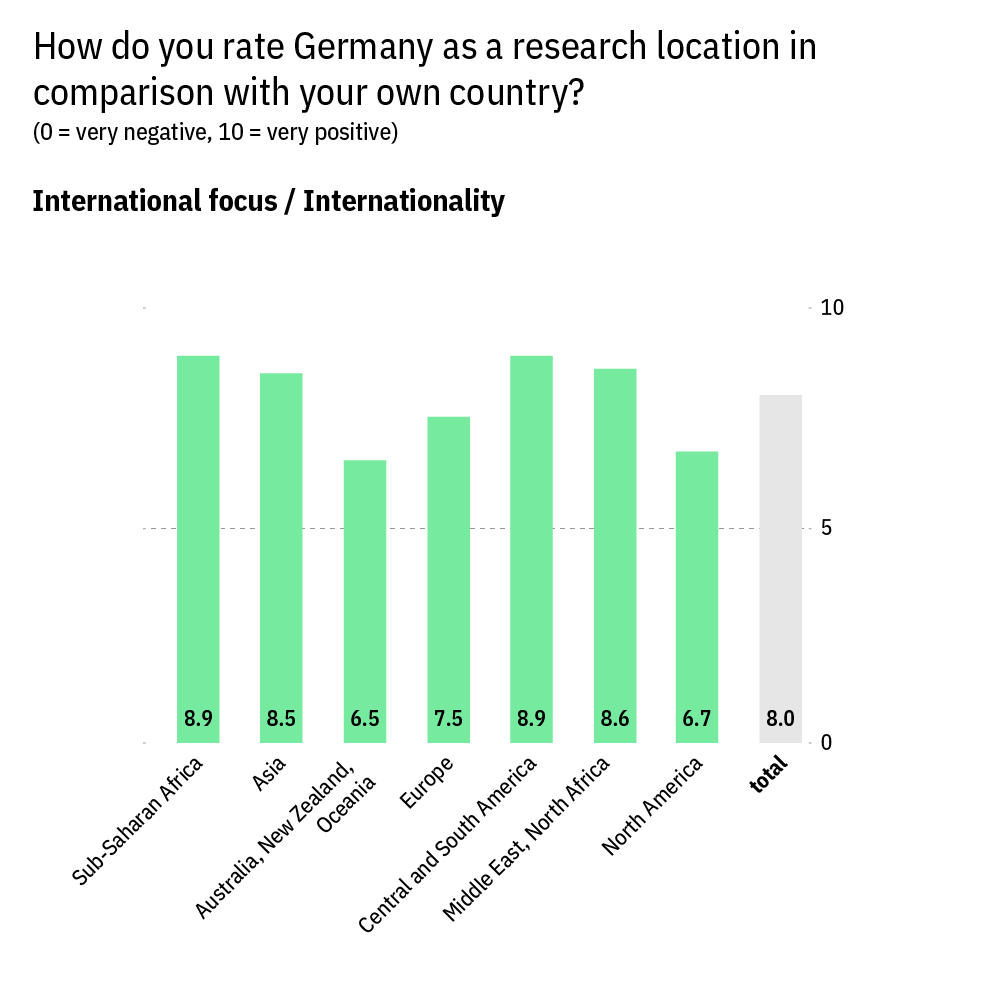
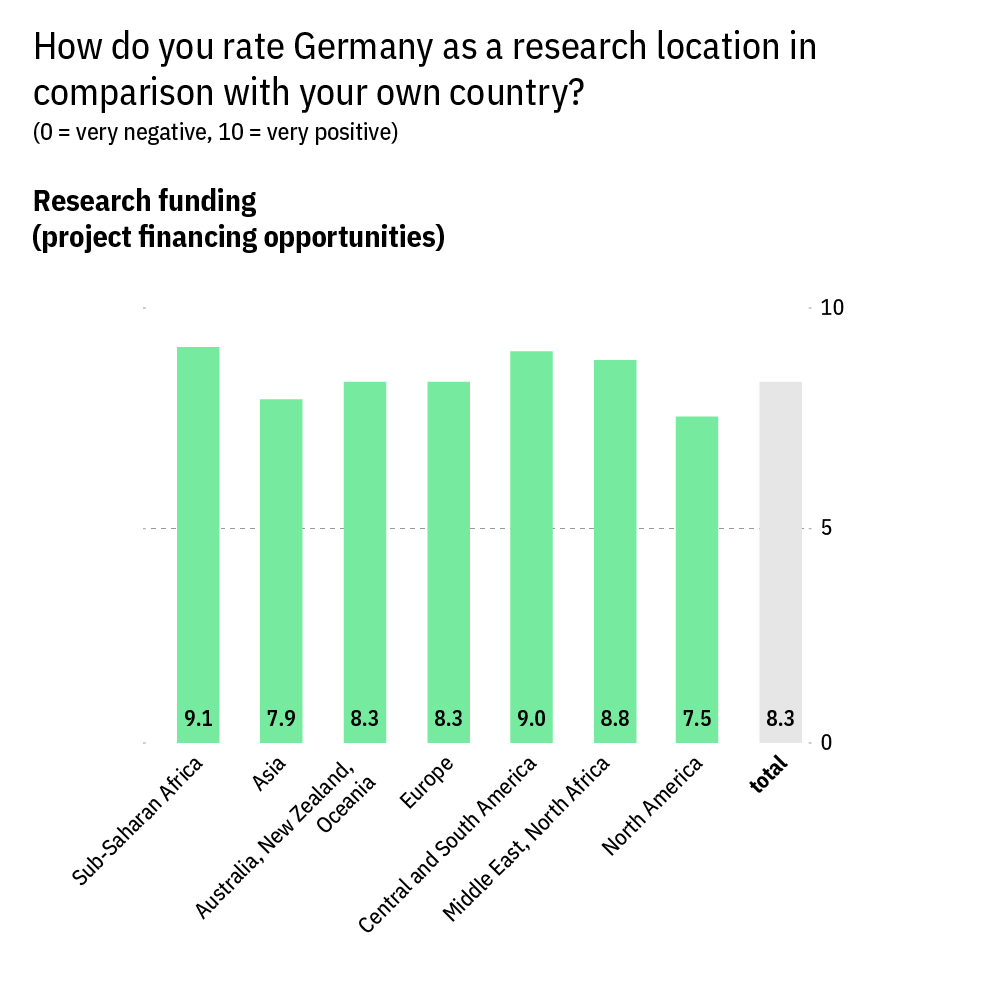
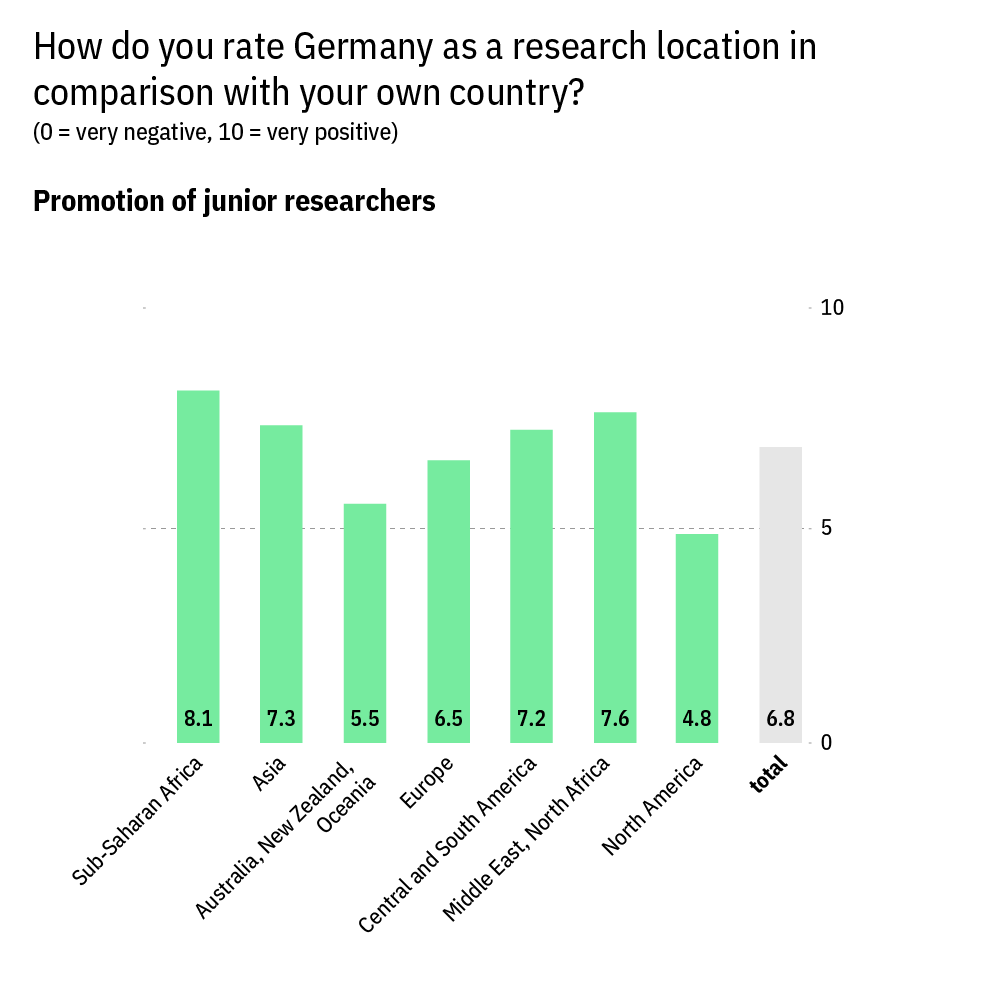
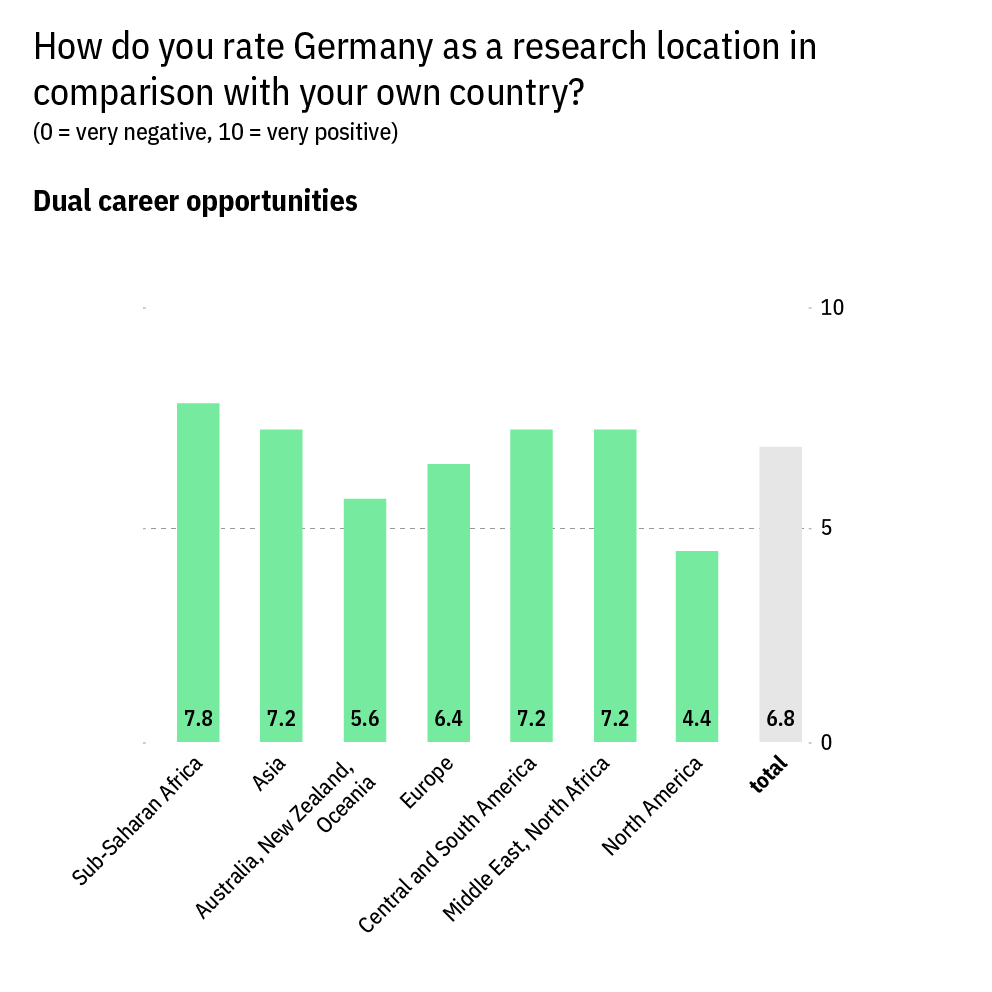
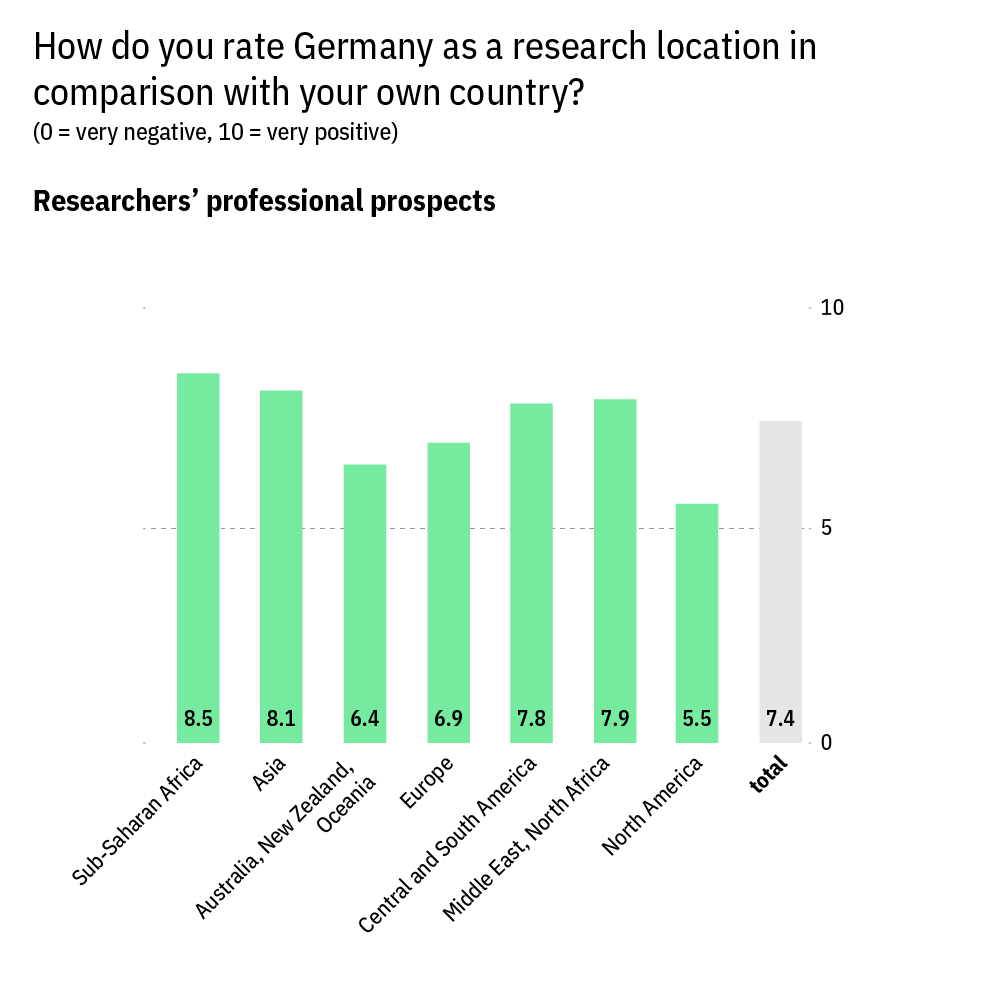
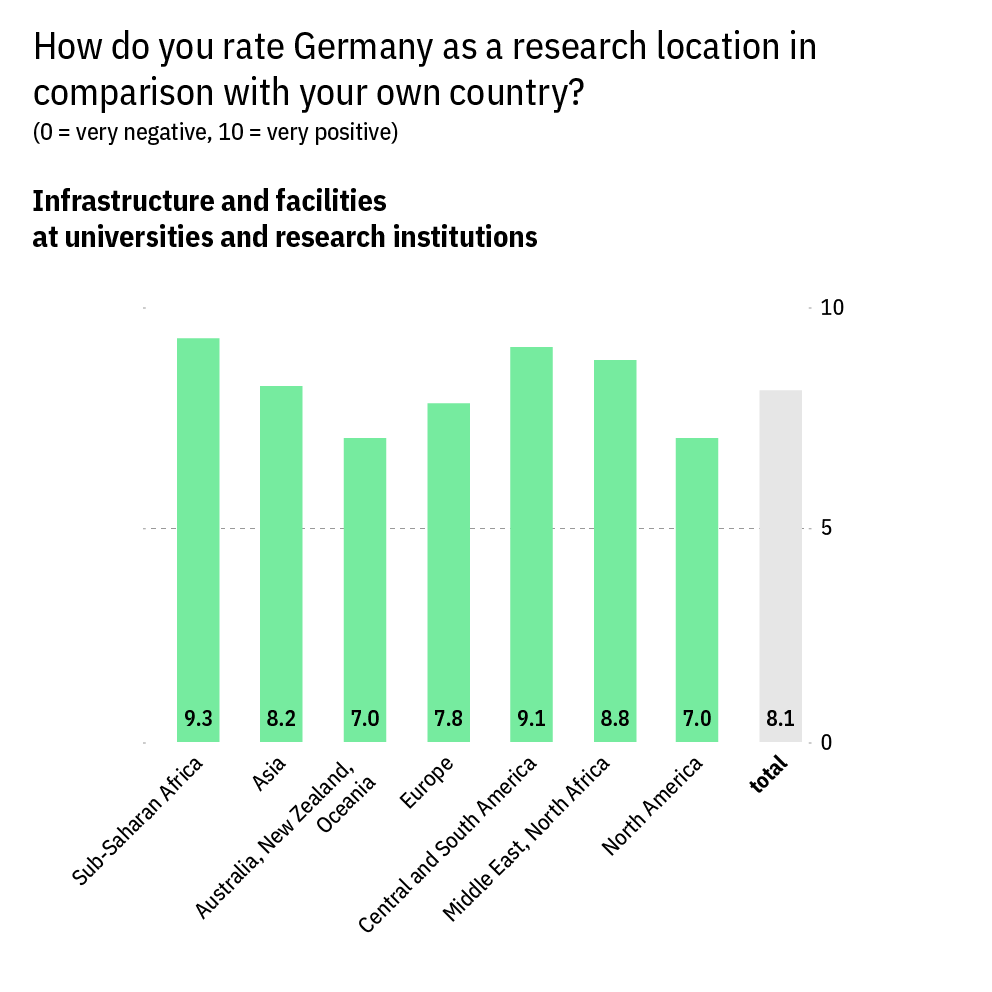
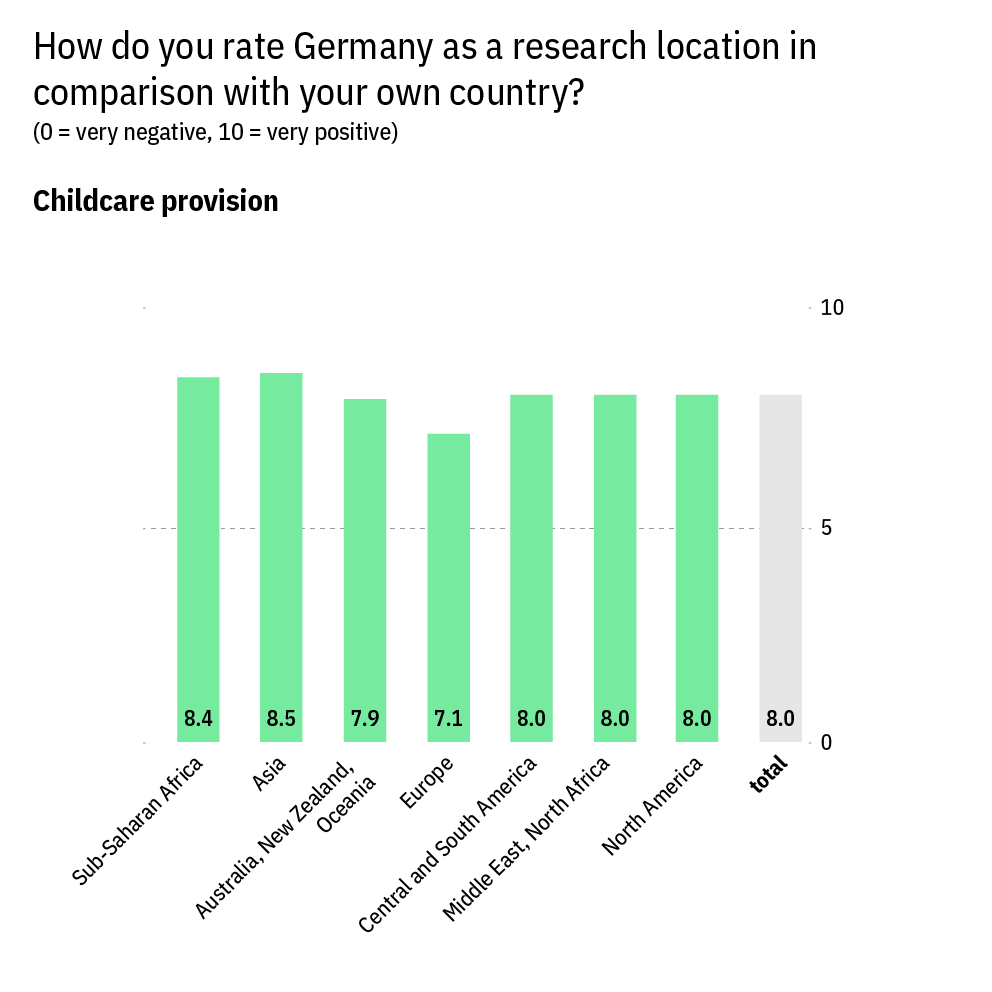
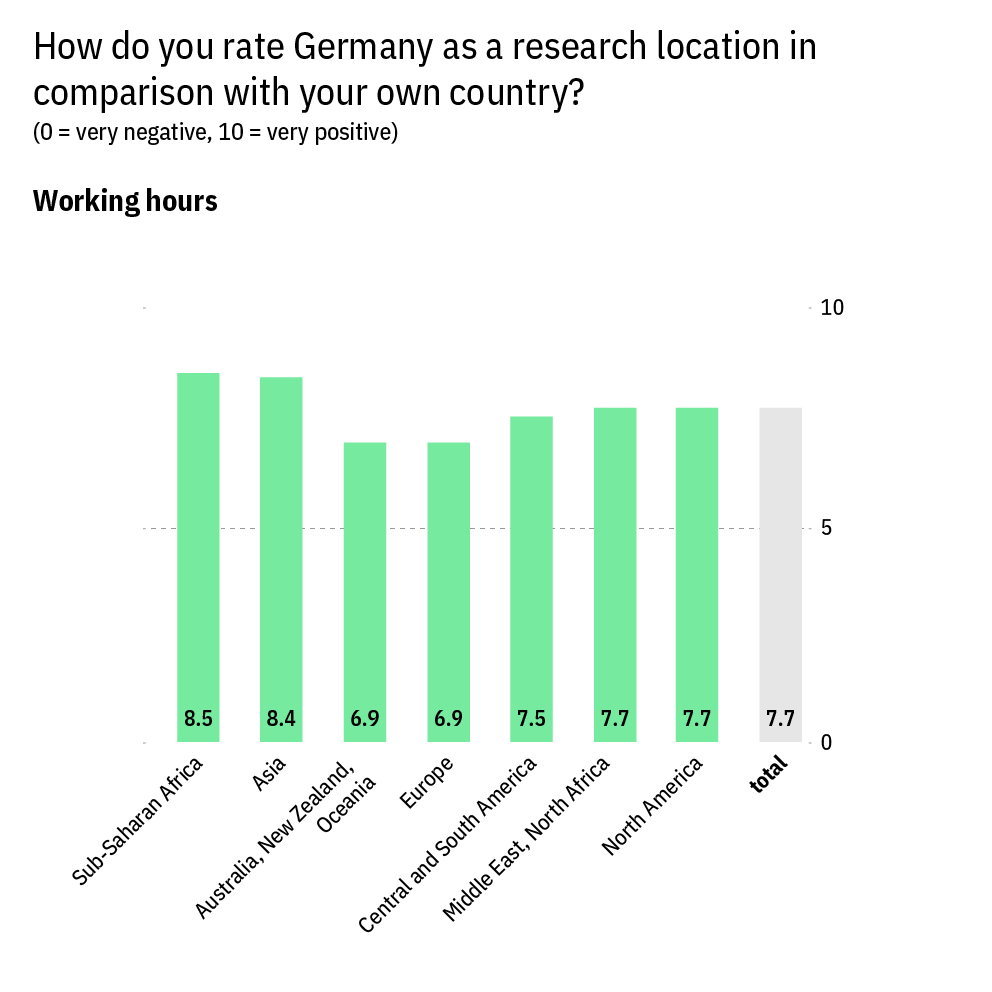
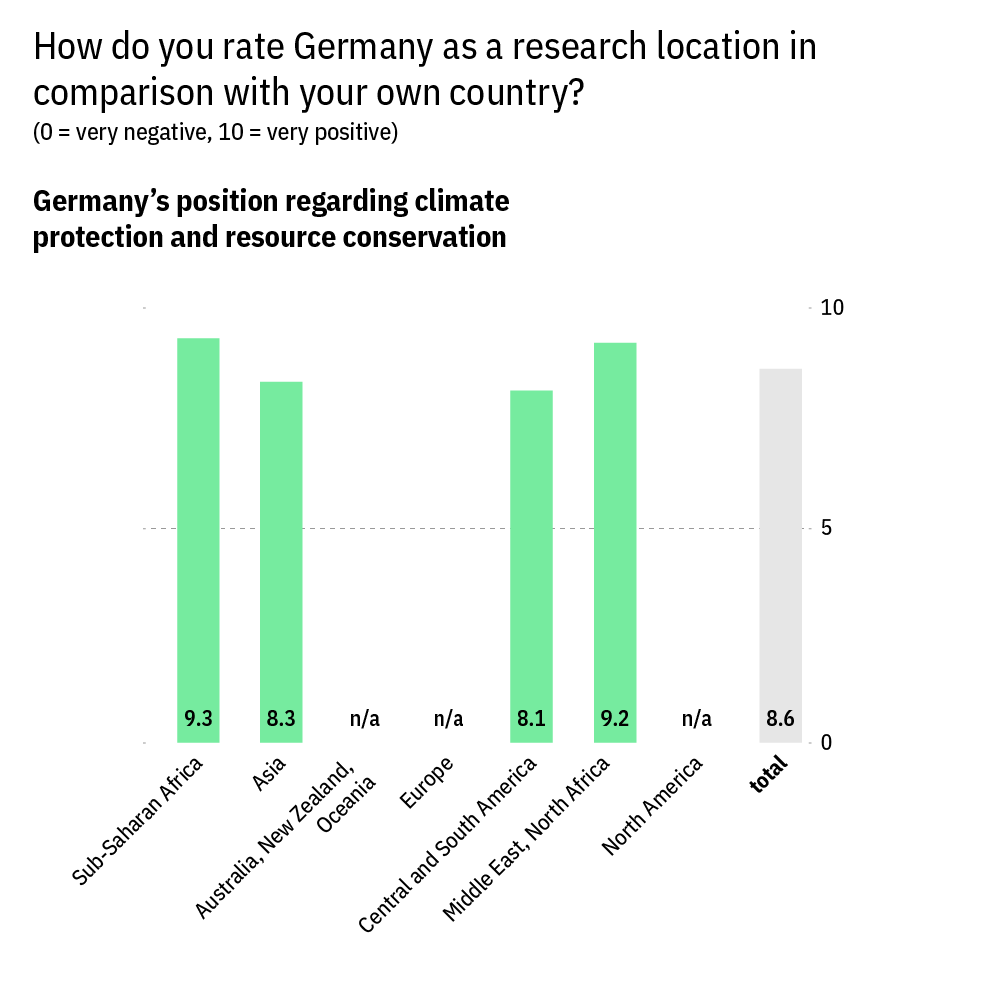
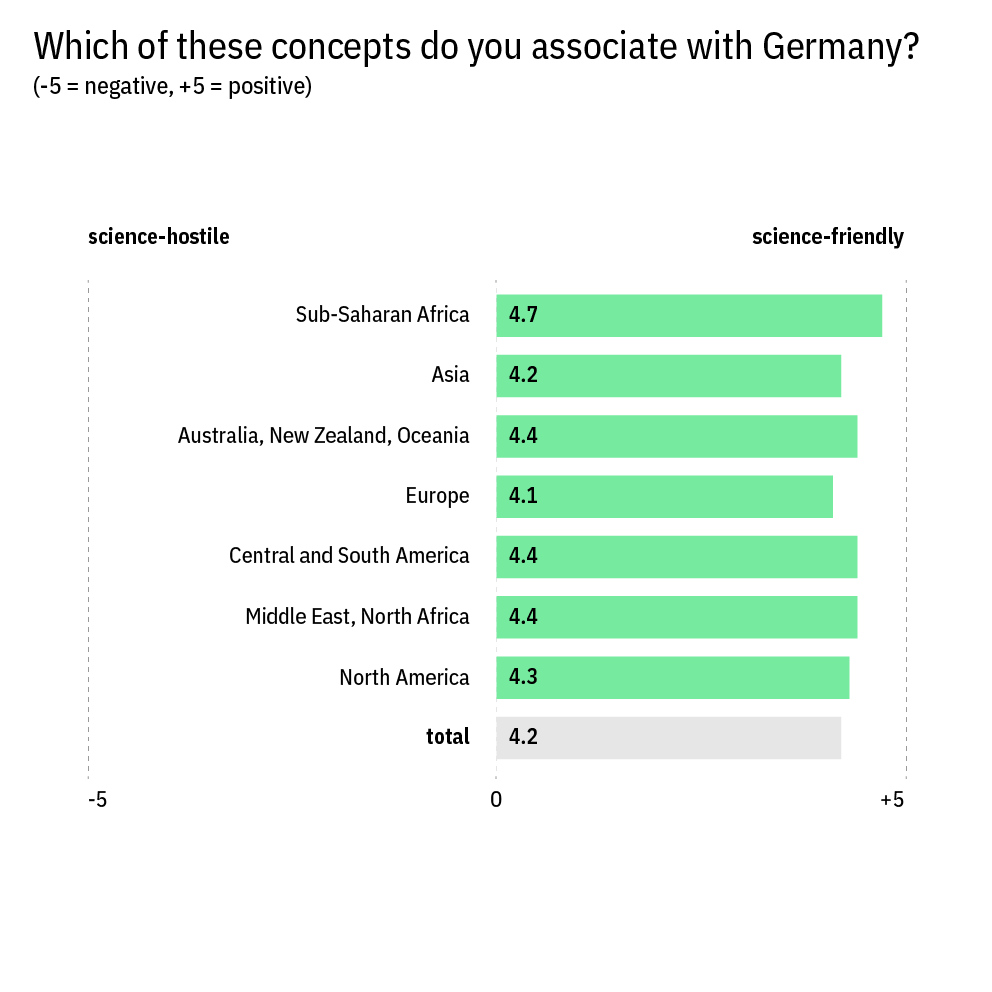
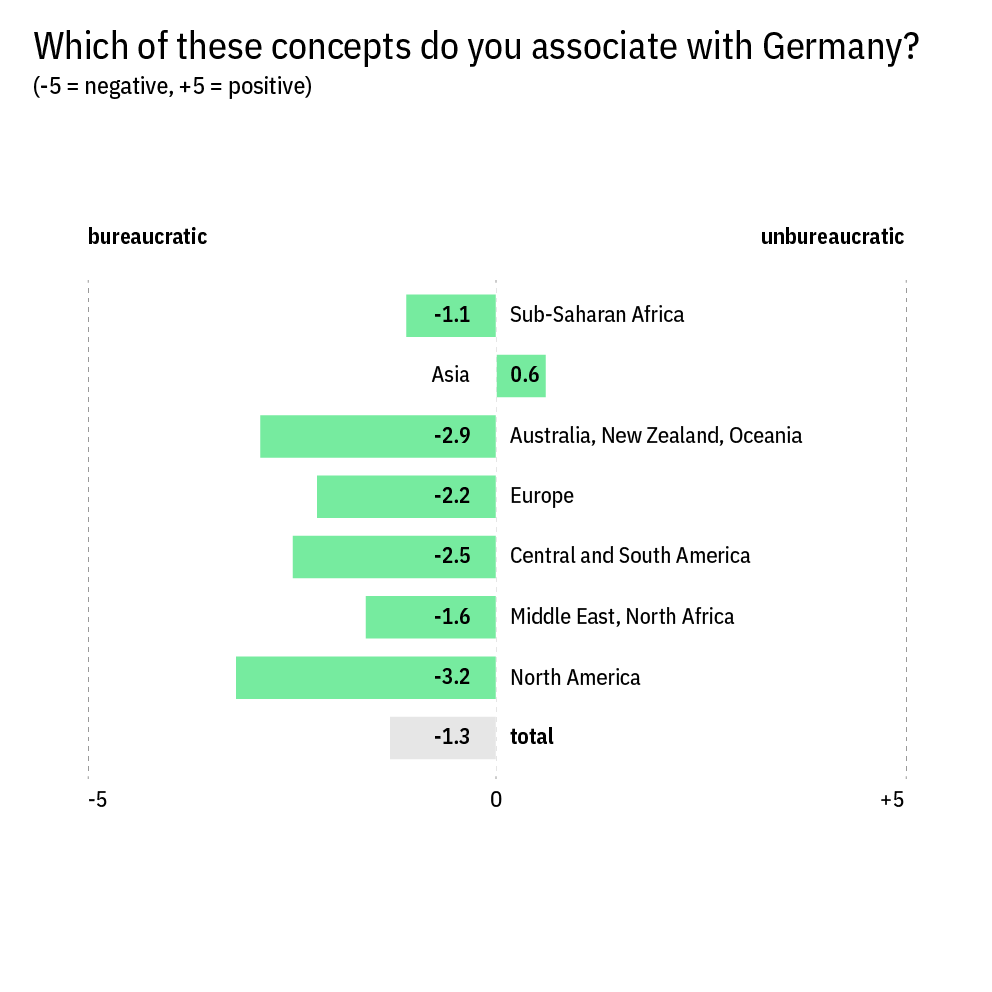
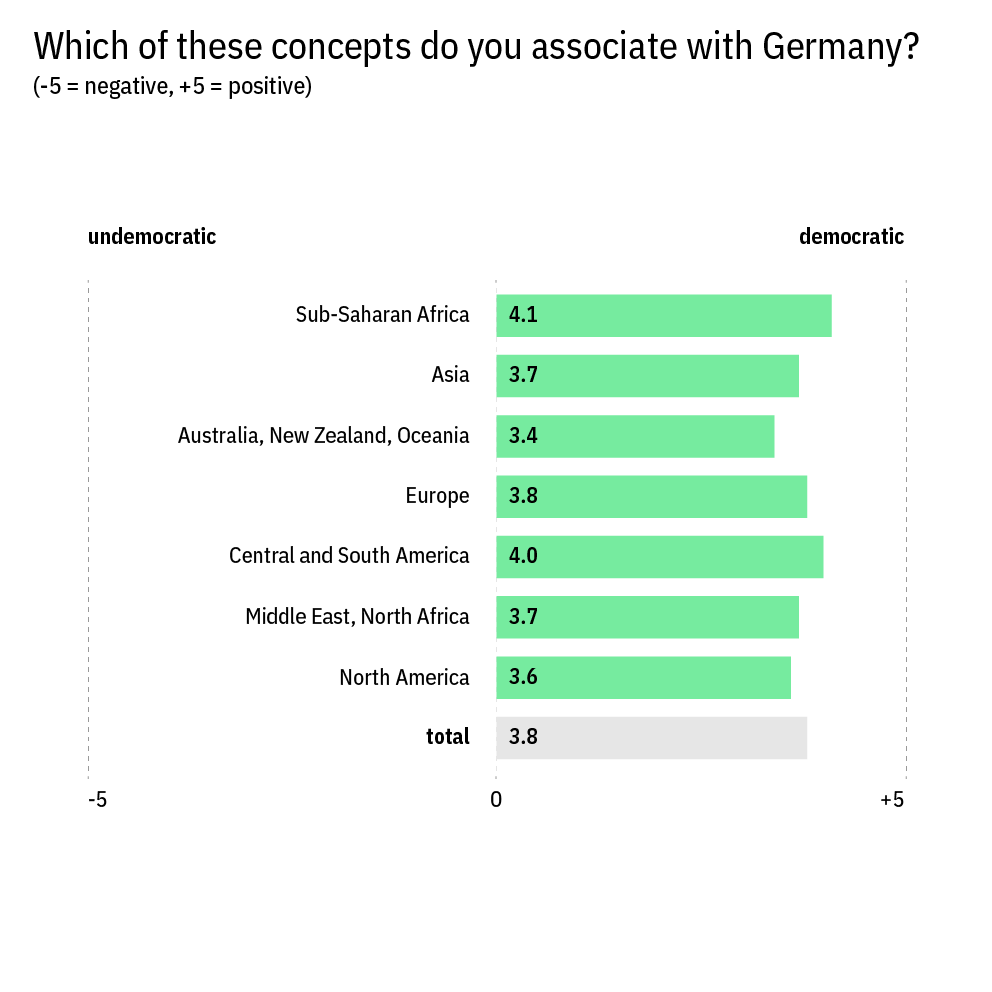
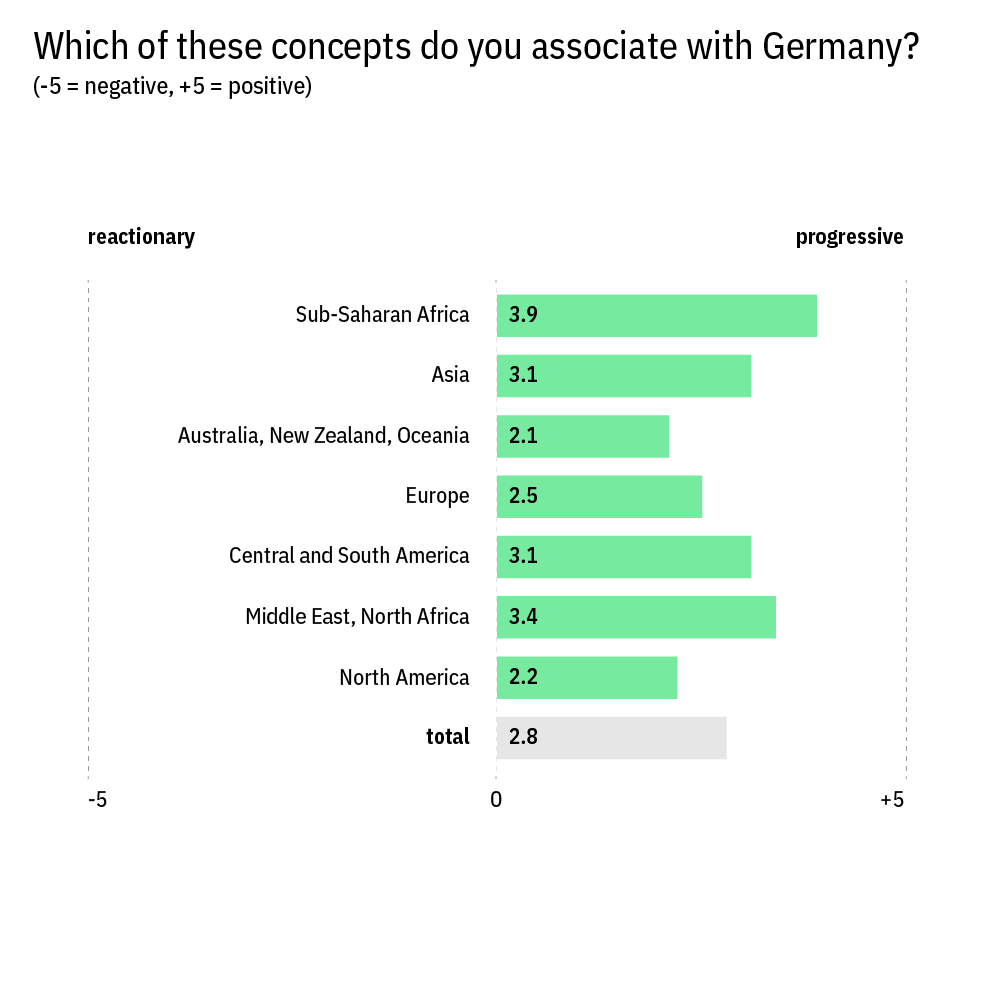
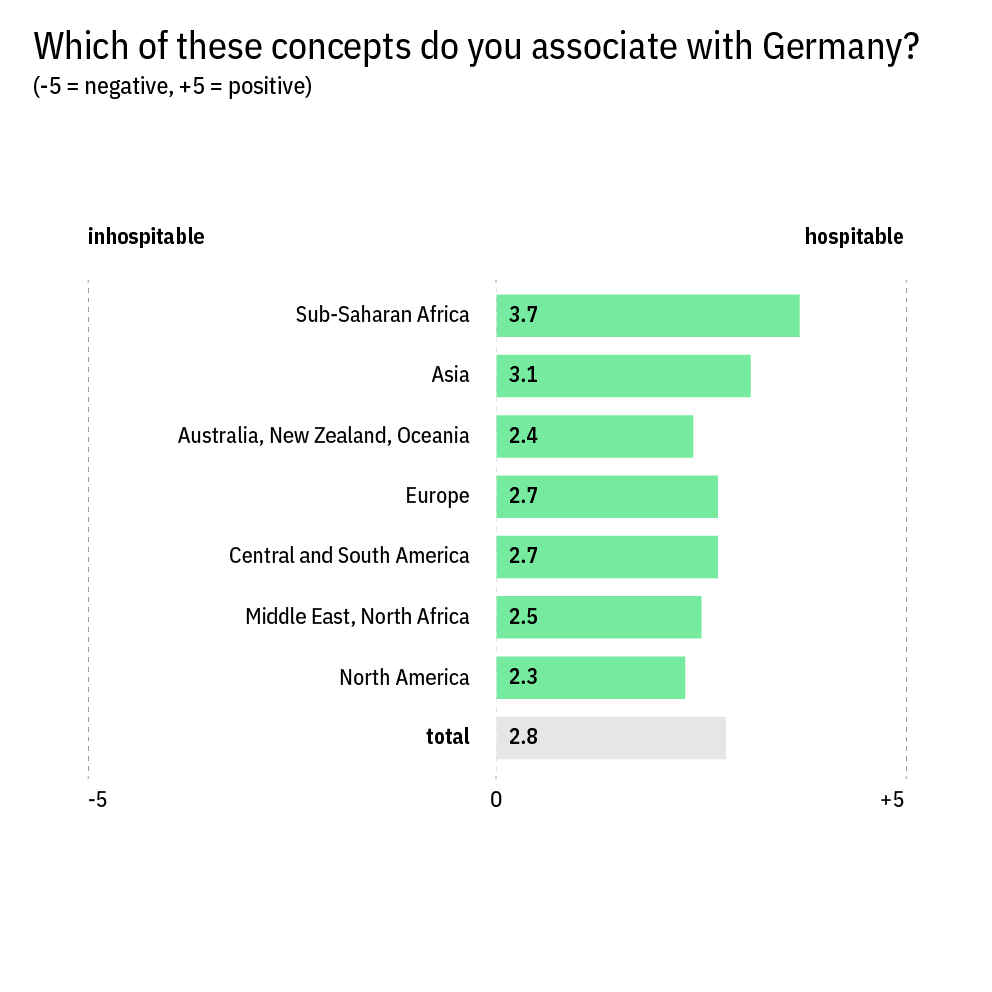
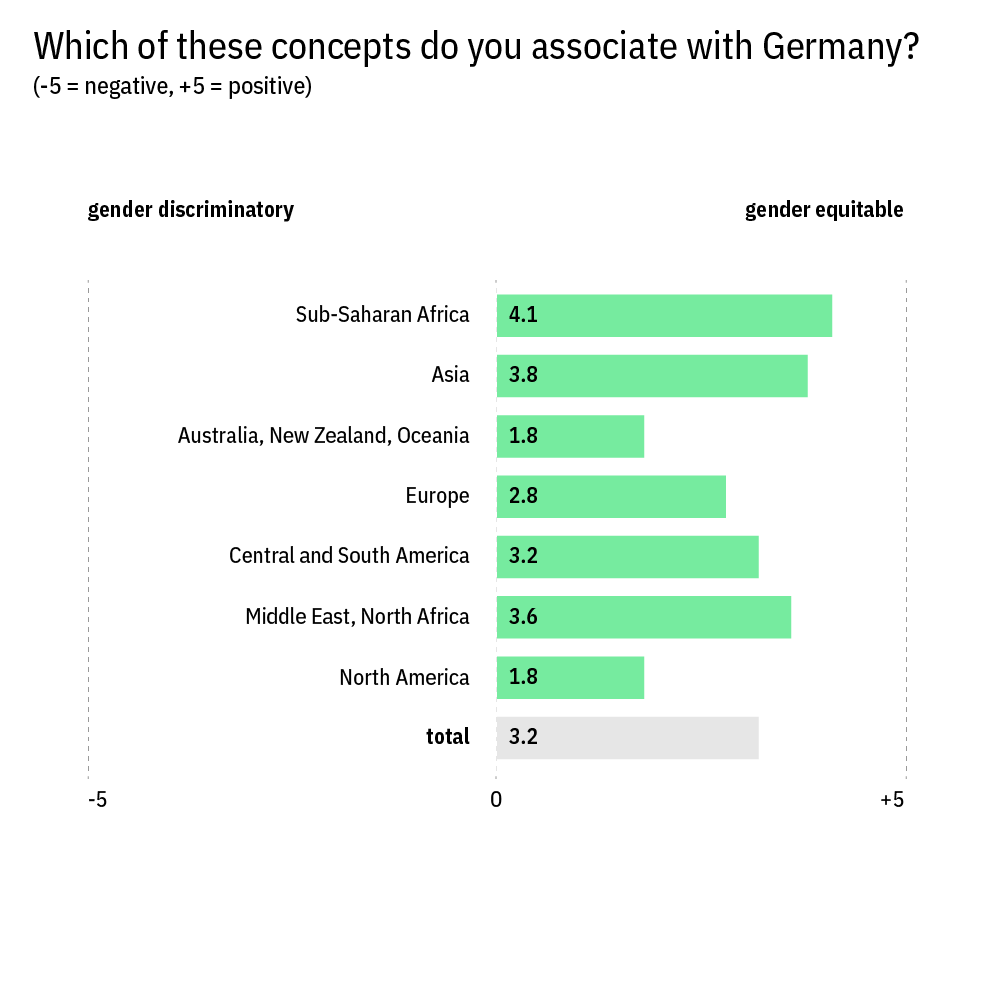
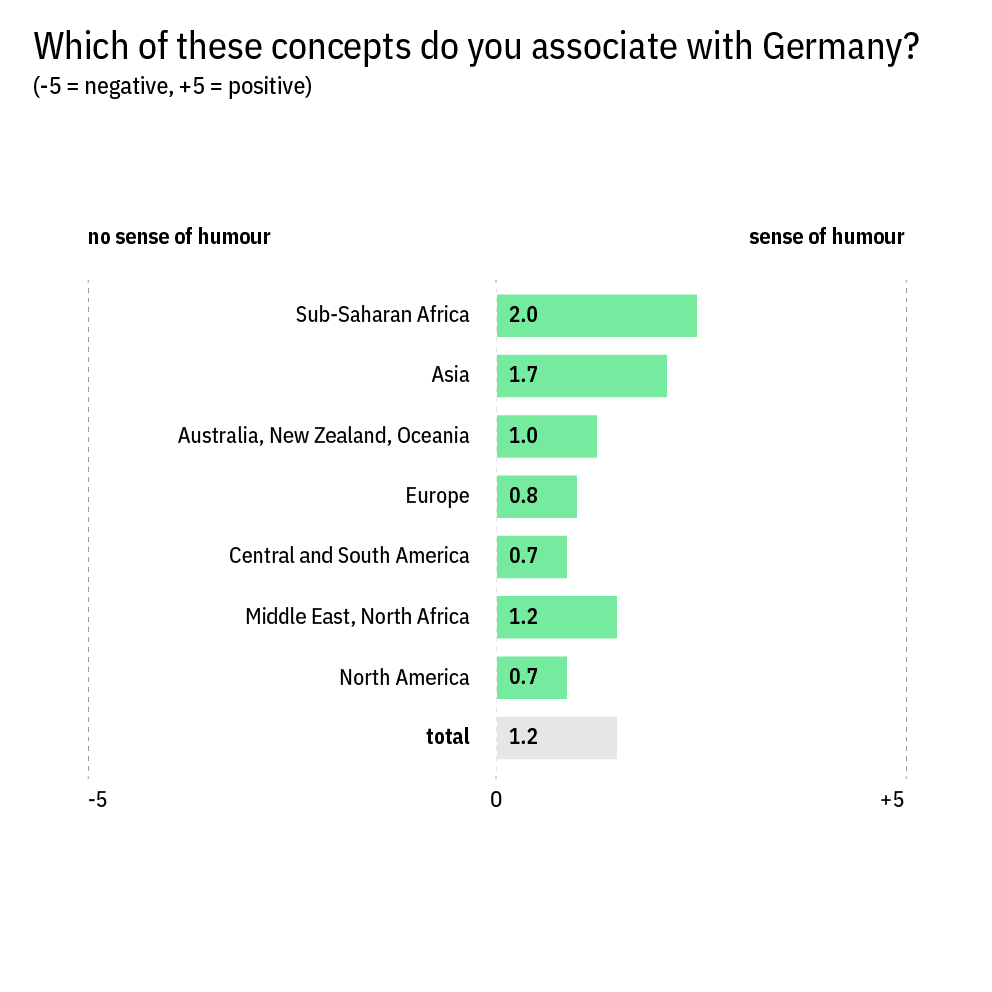
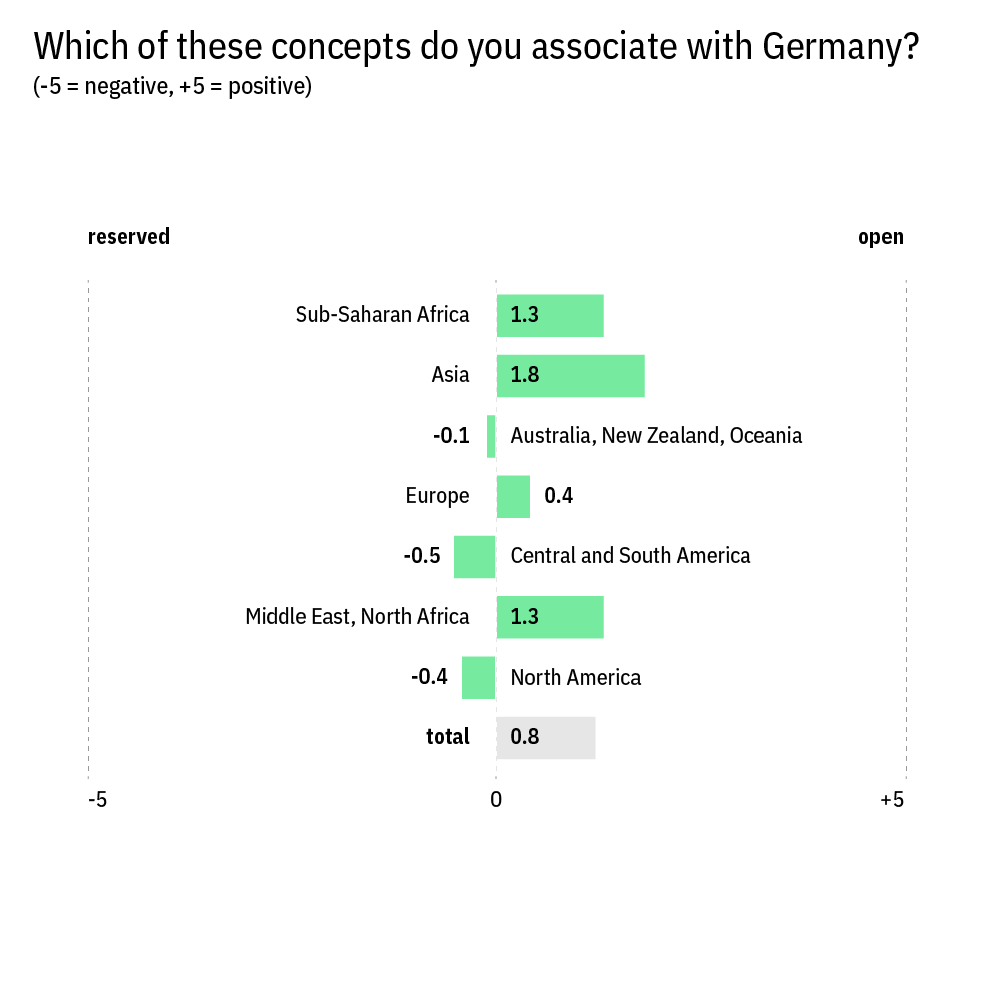
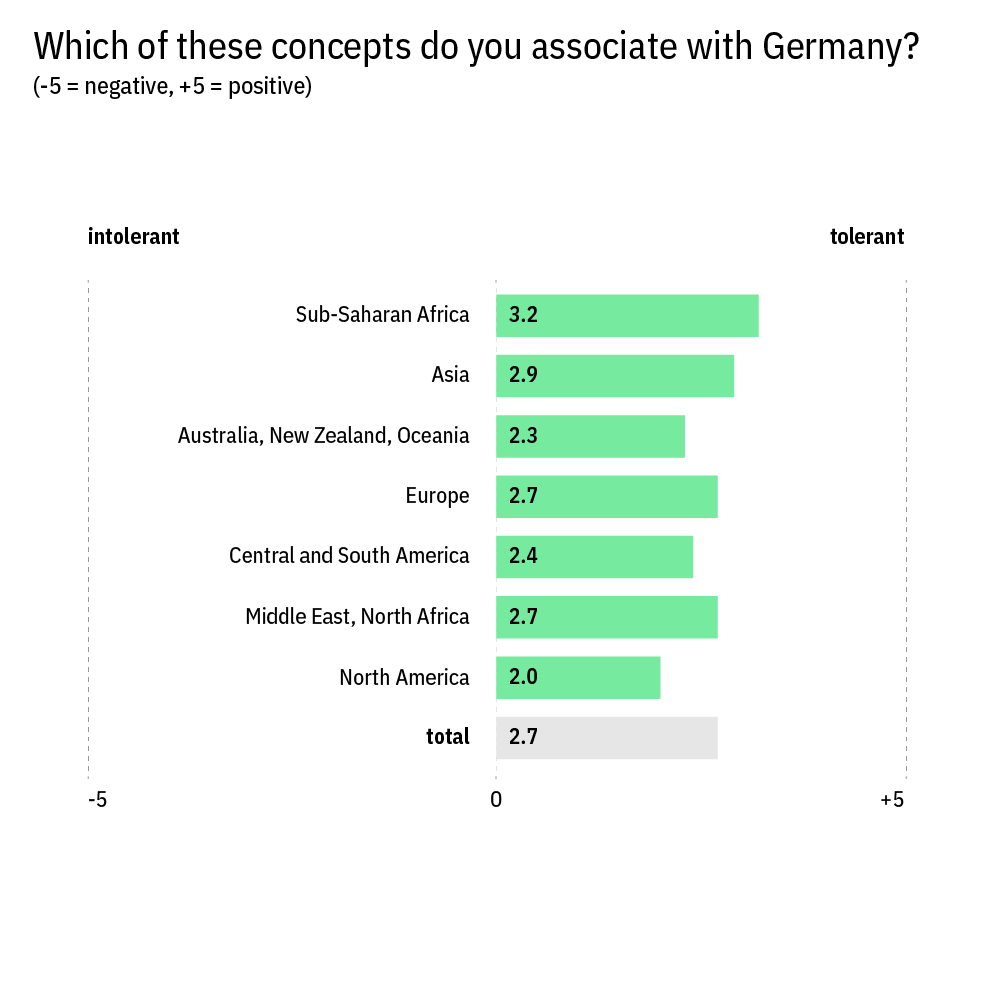
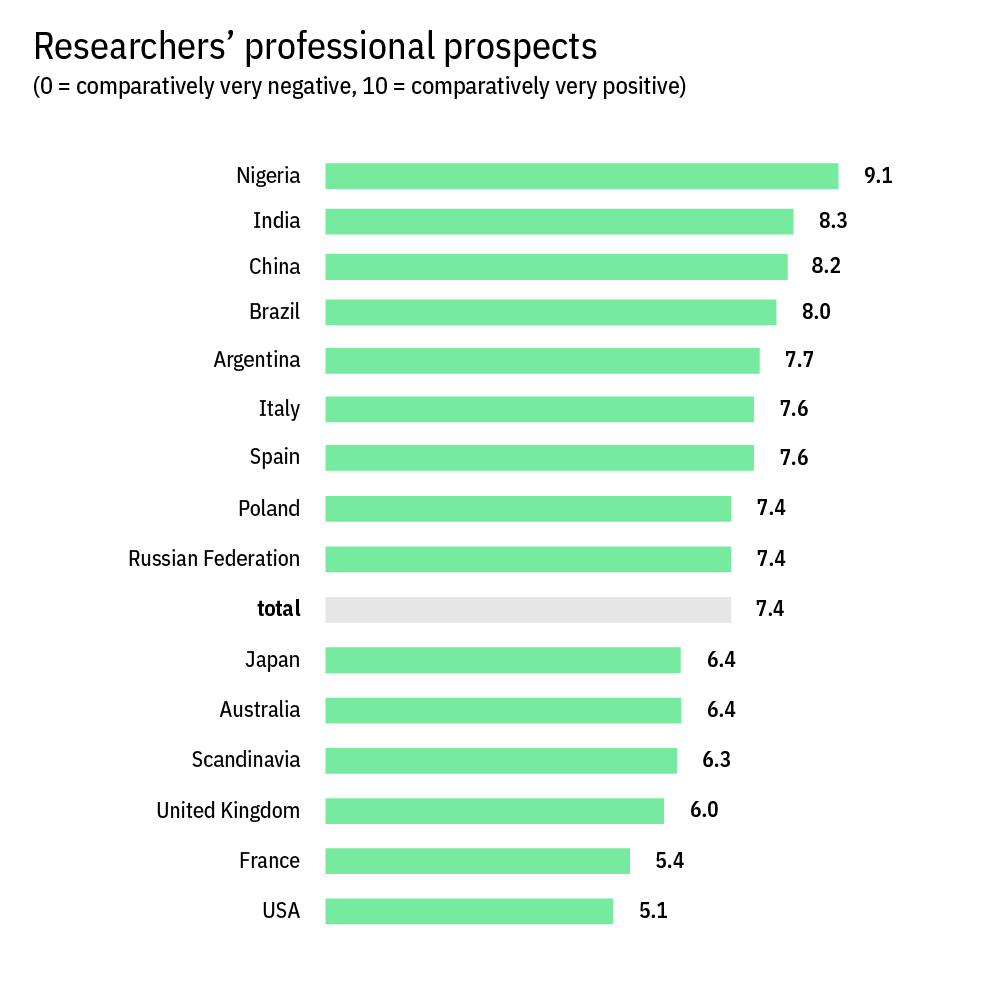
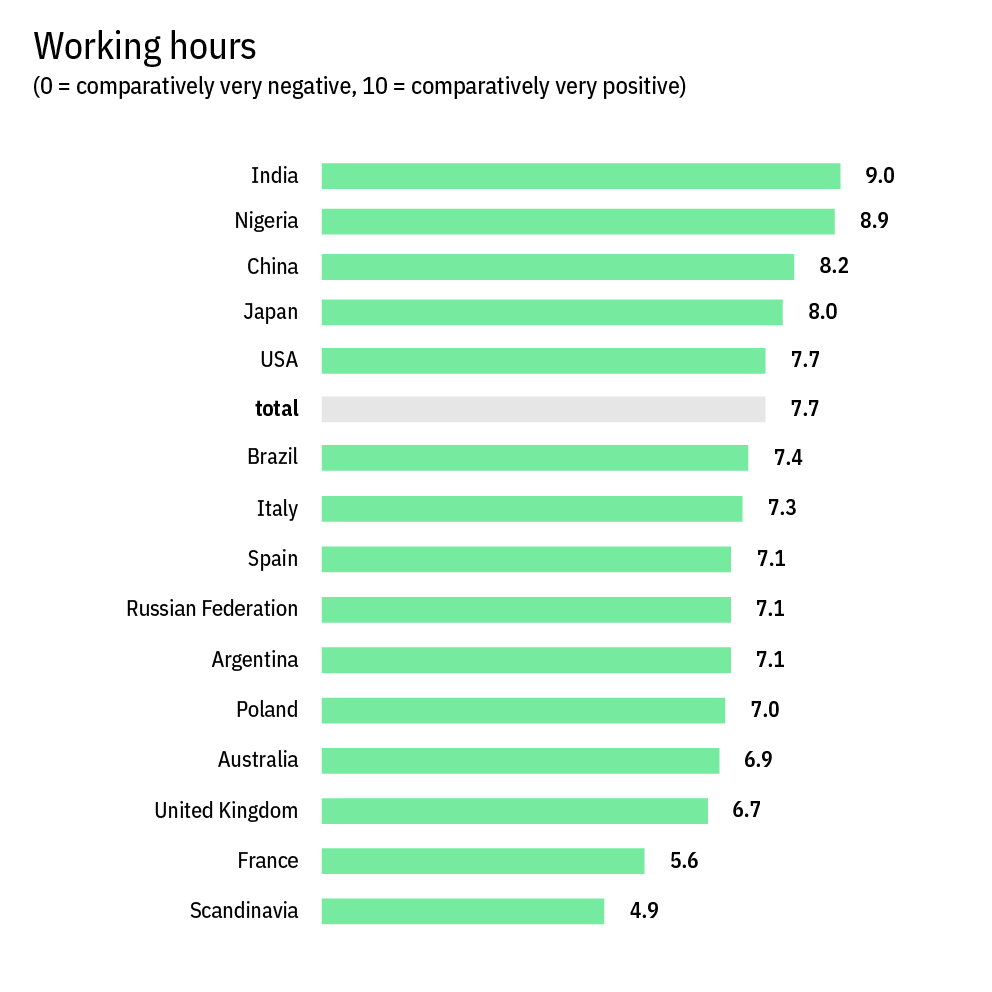
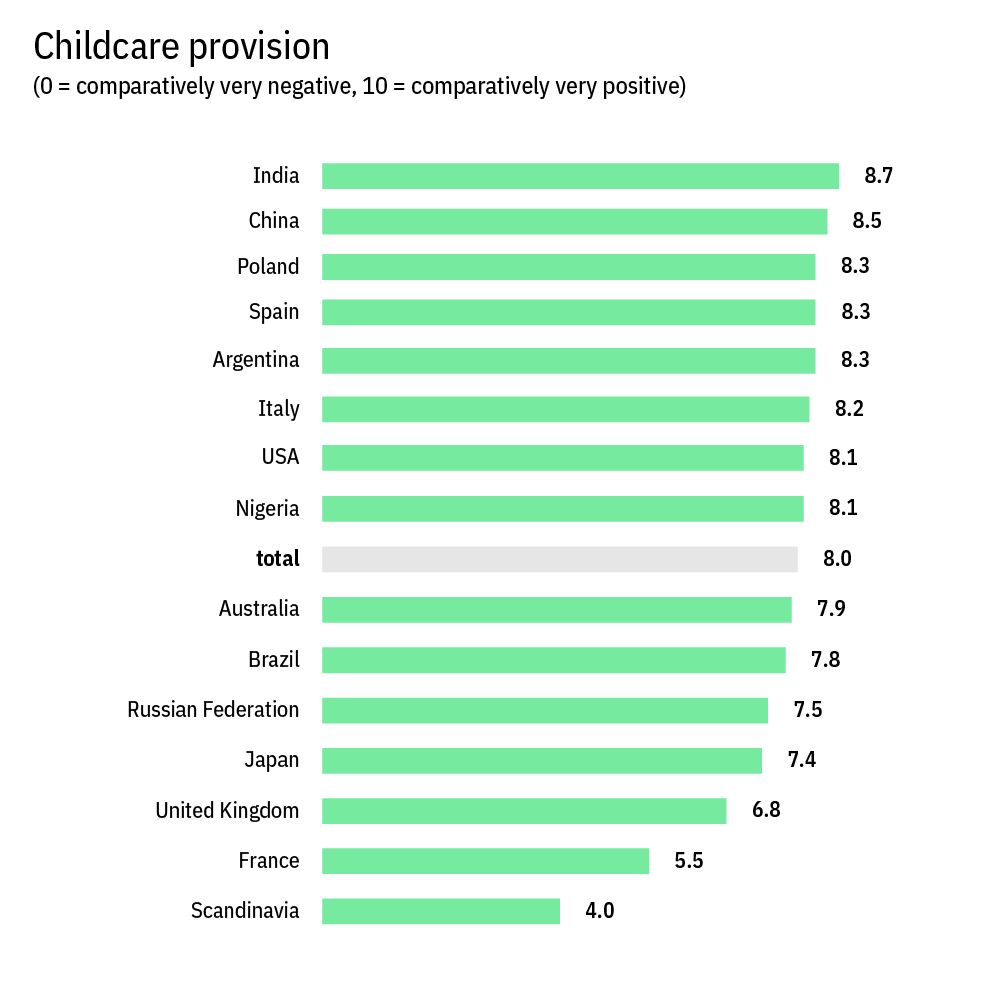
![[Translate to English:] Quote:“Coming from USA, the level of bureaucracy was unexpectedly high. While Humboldt staff made things easy, other interactions (including international office, local city registration requirements and visas for my family) were often very stressful. – USA, m](/fileadmin/_processed_/e/e/csm_AvH_Zitatpost_USA_Bureaucacy_d1c9654787.png)
![[Translate to English:] Quote:“German bureaucracy is challenging to navigate through. This is reflected in availability of appointments at administrative offices, attitude of officers, amount of paperwork involved, lack of digitisation, timeliness of processes, etc.” – India, m](/fileadmin/_processed_/d/d/csm_AvH_Zitatpost_India_Bureaucacy_5ac848b058.png)
![[Translate to English:] Quote: “By far the very worst aspect of my stay was the bureaucracy involved in setting up my registration of address, tax ID, and residence permit in Berlin. I cannot overstate the extent to which the inefficiency of these processes, and the lack of available appointments and support, negatively impacted my time as a researcher in Germany.” - Australia, f](/fileadmin/_processed_/1/a/csm_AvH_Zitatpost_Australia_Bureaucacy_kurz_3e04c8c0b3.png)
![[Translate to English:] Quote:“During the Humboldt stay I experienced subtle racism and discrimination on more than one occasion. It usually comes from people who proclaim to have egalitarian values. I previously stayed in Germany for a few years and have never experienced this. What strikes me most is the complete denial of this covert racism and unwillingness to talk about these issues.” (Pakistan, f)](/fileadmin/_processed_/9/c/csm_AvH_Zitatpost_Pakistan_Racism_e53b9fdbf1.png)
![[Translate to English:] Quote:“There is a serious problem in Germany with racism. I personally didn't have many issues, but my wife who is from eastern Europe has had many encounters with luckily only verbally aggressive Germans, including other parents forbidding their kids to play with our son. I am happy that my son was too young to really understand any of that.” (Belgium, m)](/fileadmin/_processed_/7/3/csm_AvH_Zitatpost_Belgium_Racism_72ff6b159d.png)
![[Translate to English:] Quote:“Racism, especially against those that are not white/Europeans, is rampant. From neighbours to grocers to even the police, we routinely were exposed to discriminatory actions at one point even to the extent of calling the police and prosecuting someone for criminal stalking and harassment.” (USA, m)](/fileadmin/_processed_/f/4/csm_AvH_Zitatpost_USA_Racism_ad1ba2786b.png)